Weekend Escape: Kalambaka and the Monasteries of Meteora
A perfect weekend getaway: wander among...
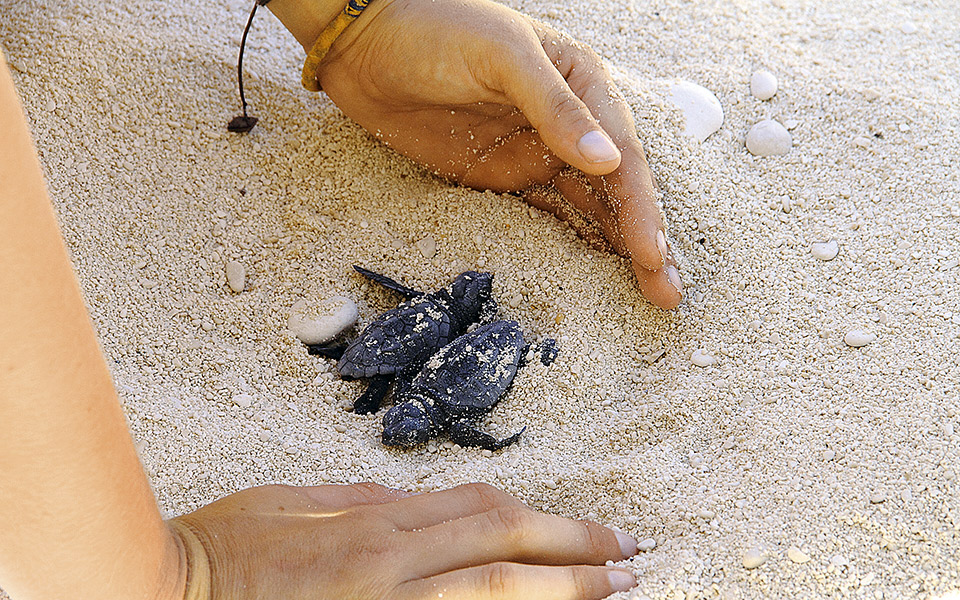
During the hatching season, volunteers patrol the beaches of Zakynthos to make sure that the newborn sea turtles are safe
© Archelon
If you are looking for new excuses to revisit Greece, or if this is your first time and you would like to make your trip more purposeful, why not consider working as a wildlife volunteer?
Greece is home to several endangered species, and Greek NGOs have long fought for their protection, relying on the help of volunteers. Volunteering for the protection of Greek animals is a unique way to have a hands-on encounter with the stunning Greek natural landscape, not to mention a great way to meet new people from all over the world and mingle with the locals.
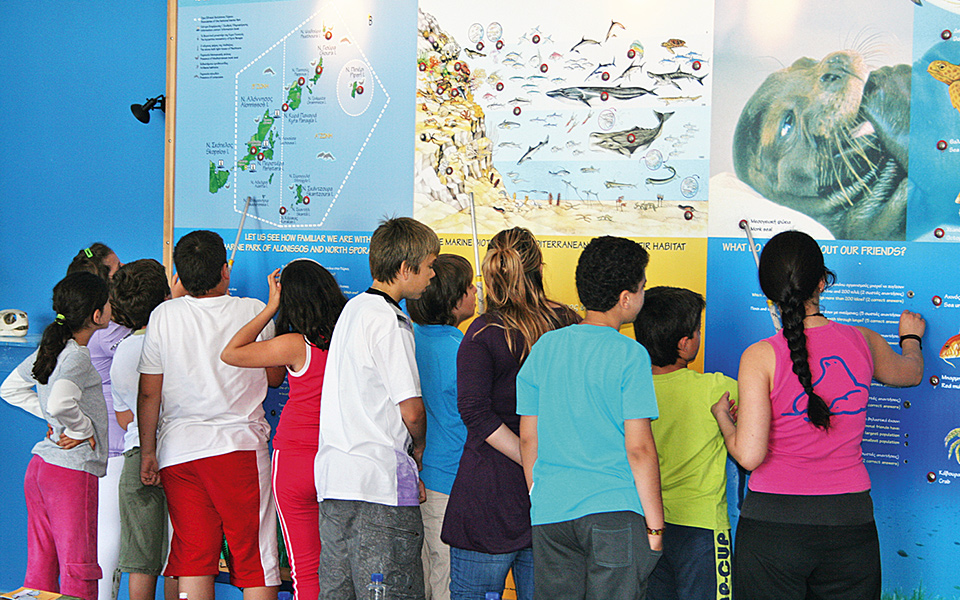
Children familiarize themselves with the inhabitants of the Marine Park
© MOm
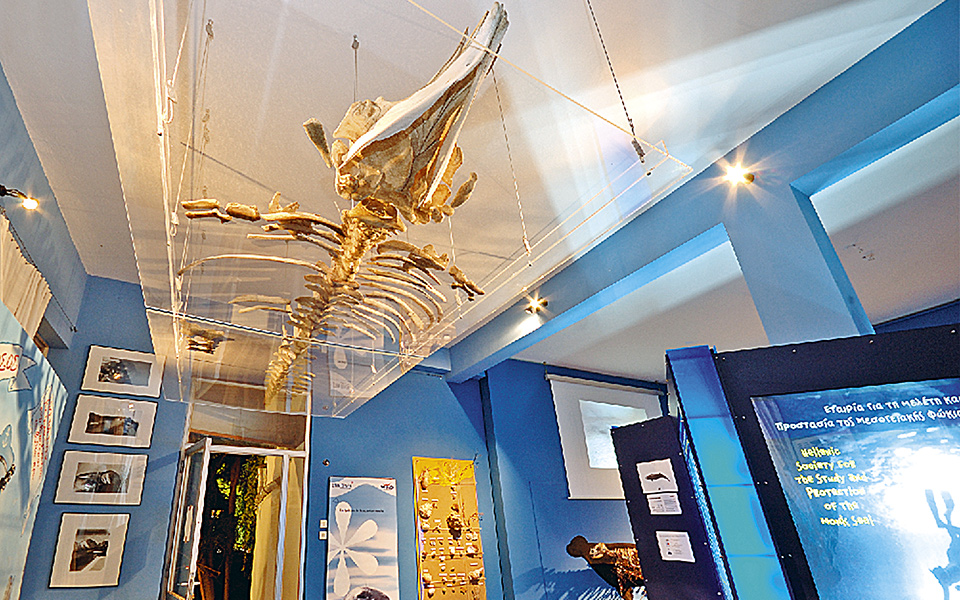
MOm's information center inside the National Marine park on Alonissos island
© MOm
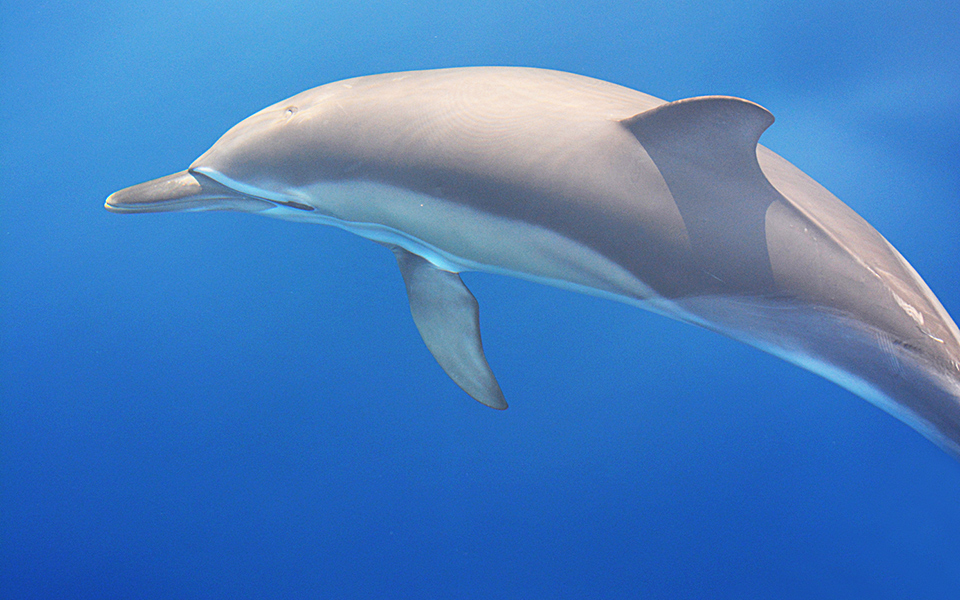
Volunteer work at the Northern Aegean Dolphin Project involves monitoring dolphin populations
© MOm
The Hellenic Society for the Study and Protection of the Monk Seal (MOm) was first established in 1988 and since then it has been active in the conservation of the marine environment and biodiversity of Greek seas, primarily through the protection of the Mediterranean monk seal Monachus monachus – the only seal species in the Medierranean Sea and the most endangered seal on earth. Their main volunteer project is the Public Awareness and Sensitization Program, which takes place each summer at the information center of MOm, inside the National Marine park on Alonissos island. Work involves informing the public about MOm’s activities and about the monk seal in particular, and attracting new members to the organization. The program starts on the 1st of June and ends on the 30th of September, with each session lasting for the duration of two weeks. Volunteers need to be over 18 and have health insurance. To actively participate they need to become Mom’s members (€25 subscription fee) and pay for their meals and travel expenses to Alonissos.
MOm’s second and more hands-on project is the Northern Aegean Dolphin Project, which involves education about marine life as well as recording, monitoring and photographing the threatened dolphin populations in the wider area of Alonissos, usually on board a research boat. Each expedition lasts for a week (13 June to 4 September). Participation is €850 per person (€750 for students), or €600-700 (€530-620 for students) for groups of 4 or 5 people. Breakfast and lunch is prepared on board by the volunteers. For both projects, MOm provides accommodation in a fully-furnished house in the port town of Patitiri.
{Info: Tel.(+30) 210.522.2888 • [email protected] }
“The Monachus monachus is the only seal species in the Mediterranean Sea and the most endangered seal on earth.”
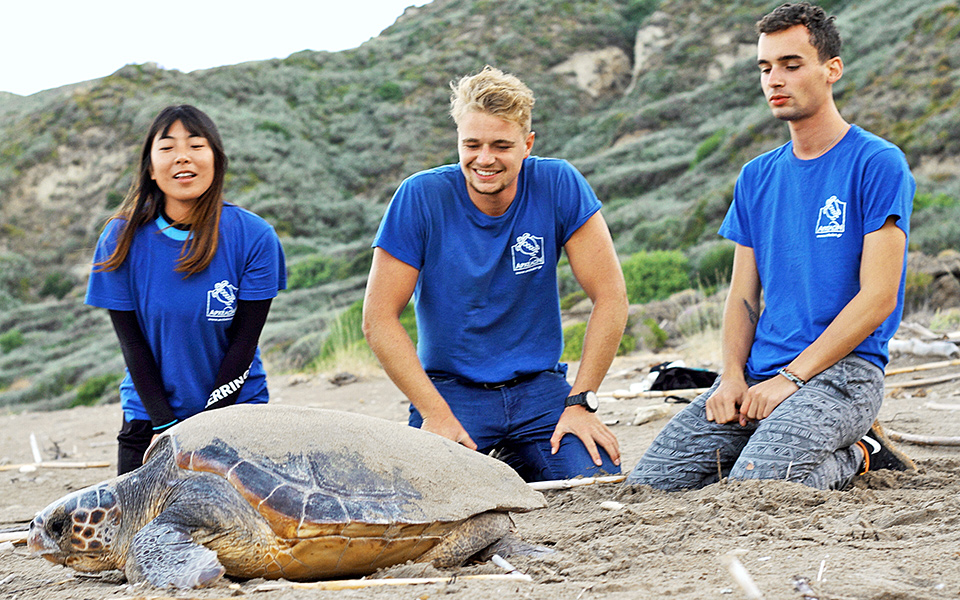
Volunteers tag nesting females
© Archelon
Archelon was established in 1983 with an aim to protect the sea turtles Caretta caretta and their habitat in Greece, through monitoring and research, habitat restoration, raising public awareness and rehabilitating sick and injured turtles. One of their regular annual projects takes place on the Ionian island of Zakynthos (Zante), in cooperation with the National Marine Park.
The program starts on May 15 and ends on October 15 to coincide with both the nesting (mid May – mid August) and hatching seasons (mid July – end of October) and volunteers can participate from a minimum of one month to a maximum of five. During the hatching season, work at the project is two-fold. It involves raising public awareness at the kiosk, at the airport, on boats, through presentations at hotels, conducting beach patrols to inform beach users how to behave on the nesting beaches so as not to harm the nests, and safeguarding the beaches at night to prevent people from entering and disturbing the turtles. The more scientific aspect of the project involves gathering data through monitoring all turtle activities: locating and relocating nests if in danger, tagging nesting females, determining hatching success, and dealing with injured or dead turtles.
The participation fee, regardless of the period spent there, is €300-400 and covers administration and training costs, an annual subscription fee to ARCHELON, accommodation (in Archelon’s camping site) and insurance for the volunteers in case of an accident. Volunteers cover both travel and food expenses themselves. Apply as soon as possible.
{Info: Archelon: Tel. (+30) 210.523.1342 • [email protected] }
“During the hatching season, work at the project involves raising public awareness.”
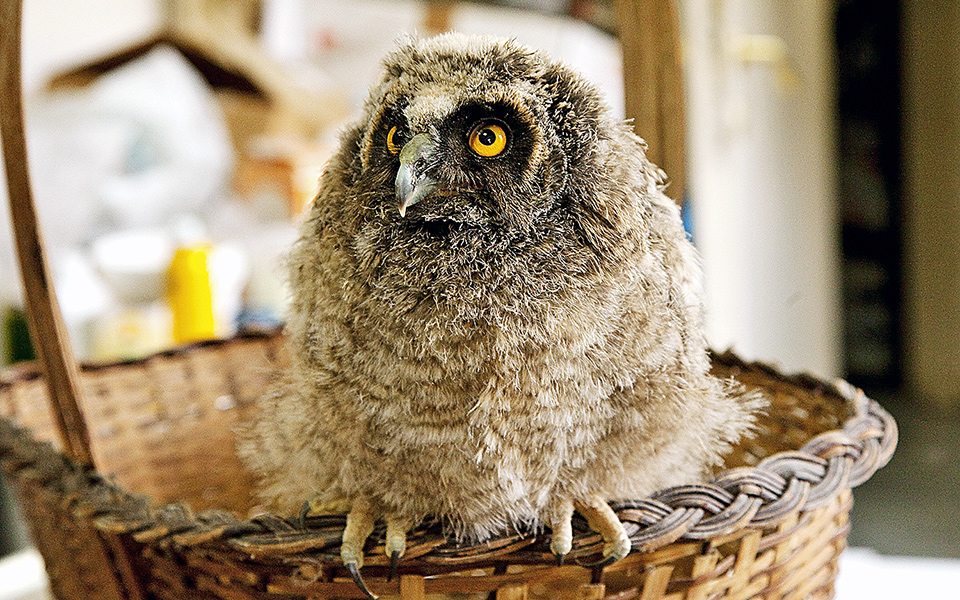
Baby owl hosted at the treatment center
© Giorgos Parhas
The center was established in 1984 in Thessaloniki, but since 1990 it has been operating as an NGO on the island of Aegina, nursing all sorts of wild animals, many of which are rare. The animals that cannot be freed and rehabilitated remain in the center, often producing offspring that is released into the wild. The center currently hosts around 2,000 wild animals, mostly birds.
Volunteers can apply for work throughout the year, and no prior knowledge or experience is necessary. A typical work day is 6-8 hours, and it involves participation in the wide range of daily routines at the center: cleaning and/or building cages, feeding the animals, assisting in their treatment, gardening and other tasks. Participation is €100, which covers the subscription to the organization, and €40 weekly to cover the costs of accommodation and meals at the center.
{ Info: Tel.(+30) 6937145333 (Despina Hatzinikolaou) or (+30) 6979914851 (Yiannis Poulopoulos) • [email protected] (for info and applications) • www.ekpaz.gr (currently only in Greek) }
“The animals that cannot be freed and rehabilitated remain in the center, often producing offspring that is released into the wild. ”
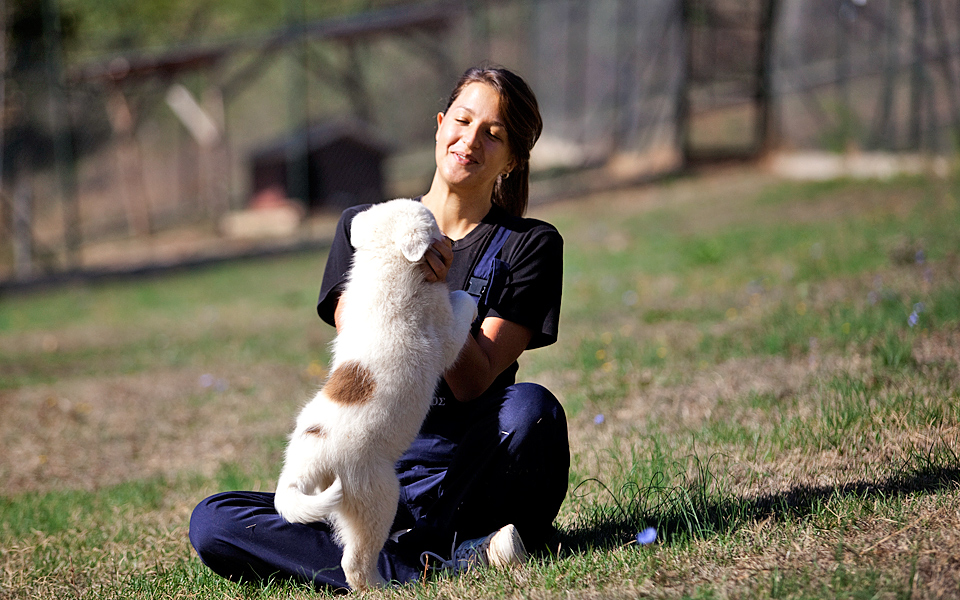
Volunteer at the Greek Sheepdog Preservation, Feeding and Redistribution Center
© Arcturos
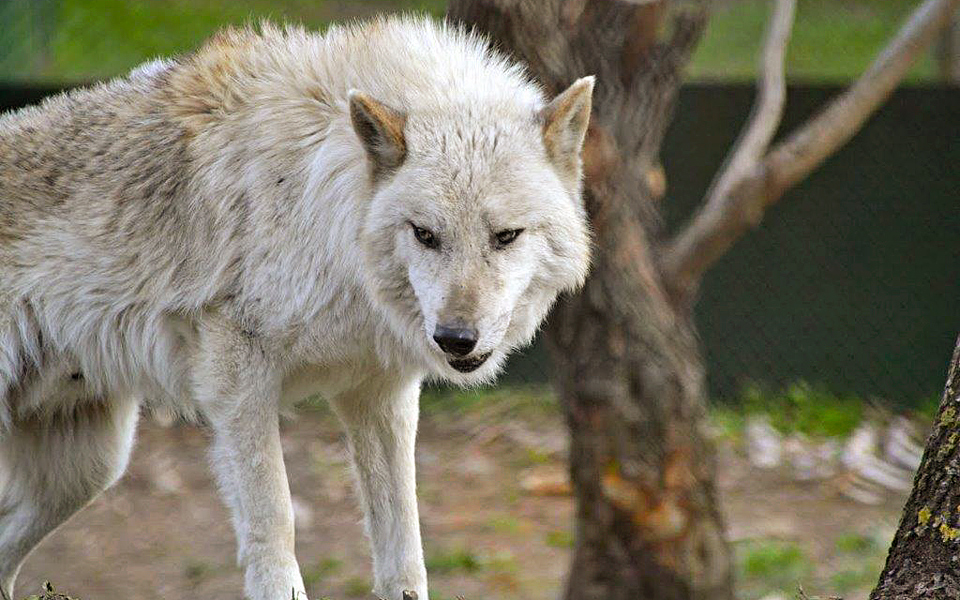
Billy the wolf...
© Arcturos
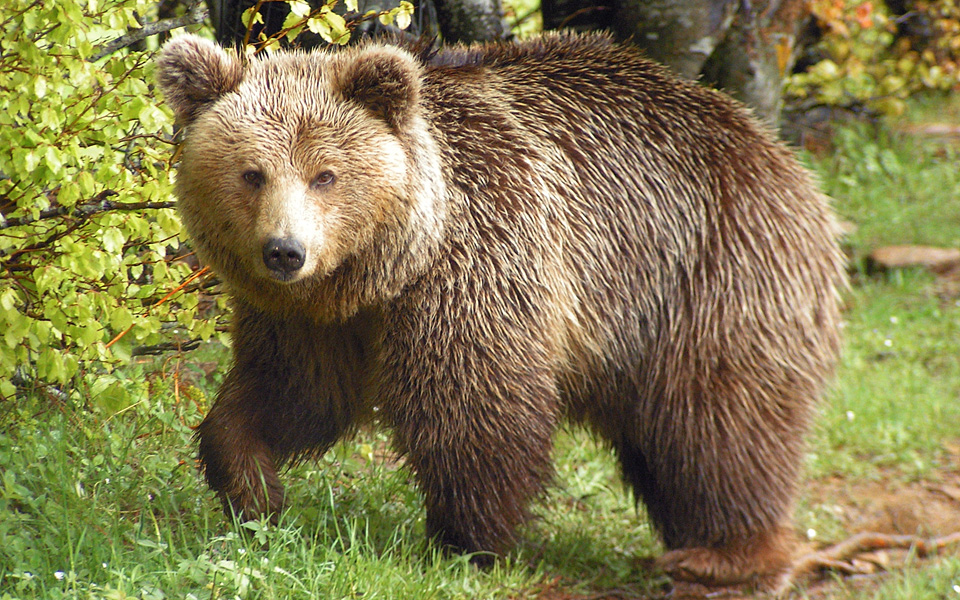
...and Tassoula the bear
© Arcturos
Arcturos is more widely known as a bear sanctuary. It was established in 1992 in an effort to solve the increasing problem at the time of bear and wolf captivity. The NGO nowadays still seeks to protect mountainous ecosystems, with an emphasis on bears and large mammals, but also to enhance biodiversity and sustainability in Greek rural areas.
Volunteers are accepted from March to December each year, for programs lasting from 4 to 8 weeks. There are two possible work placements, both located in Florina, northern Greece. In the first placement work entails observing bears and wolves and evaluating their behavior (under guidance), while in the second, work entails helping out at the Greek Sheepdog Preservation, Feeding and Redistribution Center, where Greek sheepdogs are bred in order to later be distributed to farmers whose livestock is endangered by large carnivores. Participation in the programs is free and volunteers are hosted in a guesthouse.
{Info : Tel.(+30) 238.604.1500 • [email protected] }
“The NGO nowadays still seeks to protect mountainous ecosystems, with an emphasis on bears and large mammals”
A perfect weekend getaway: wander among...
A springtime haven of wildlife, scenic...
Discover the best of Mount Olympus...
Hiking lesser-known paths where history, nature...